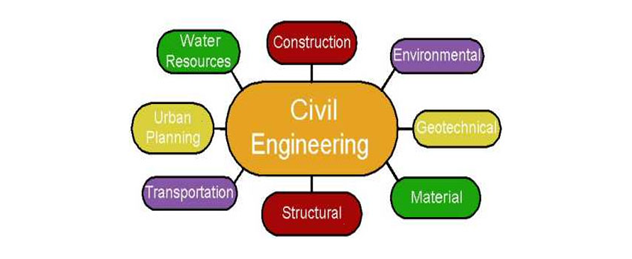| S.No. | Course | Duration | Eligibility Criteria |
|---|---|---|---|
| 1 | Diploma Engineering (Polytechnic) | 3 years | 10th passed with 45% marks |
| 2 | Diploma Engineering (Lateral) (Polytechnic Lateral) | 2 years |
10+2Science(PCM) passedwith 45% marks
OR ITI passed with 45% Marks |
| 3 | B.Tech | 4 years | 10+2 Science(PCM) passed with 45% Marks or Equivalent Grade (40% or equivalent in case of candidate belonging to reserved category) |
| 4 | B.Tech (Lateral) | 3years |
B.Sc(in Physics or Maths) passed with 45% Marks or Diploma Engineering(Civil) passed with 45% Marks. |
| 5 | M.tech | 2 years |
M.Sc(in Physics or Maths category) Or B.Tech(civil) passed with 45%Marks. |
About Civil Department:
Civil engineering is the professional practice of designing and enhancing infrastructure projects. This can be on a huge scale, such as the improvement and construction of nationwide transport systems or water supply networks, or on a smaller scale, such as the improvement and construction of individual roads or buildings.
Department of Civil Engineering in Sai Nath University was established in the year 2012with well-furnished classrooms and well equipped laboratories. . Our primary aim is to create civil engineers with technical skills in civil works. The department emphasis on providing theoretical as well as practical knowledge to students. Here seminars, construction site visits, webinars and many more academic activities are conducted on regular basis which enhances the caliber of students. Our alumni are well placed in construction companies through campus placements held in our campus.

Scope of Civil Engineering
Civil engineers can work in national and multinational companies where they can find technologically advanced learning and experience. The salary expectations vary from institutes to job locations and also depend on the skills of the individual.
Civil engineers are recruited for job as:
- Building control surveyor
- CAD technician
- Consulting civil engineer
- Contracting civil engineer
- Design engineer
- Estimator
- Site engineer
- Structural engineer
- Water engineer
FUTURE PROSPECTS:
A growing population likely means that new infrastructure while, at the same time, old, existing water systems must be maintained to reduce calamity. Civil engineers will continue to play a key role in this work.